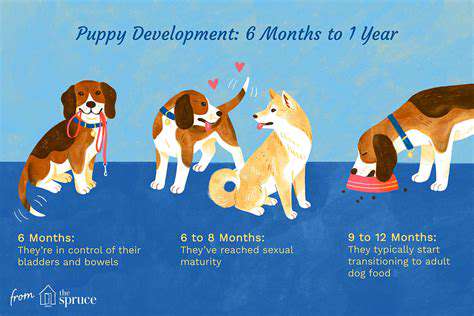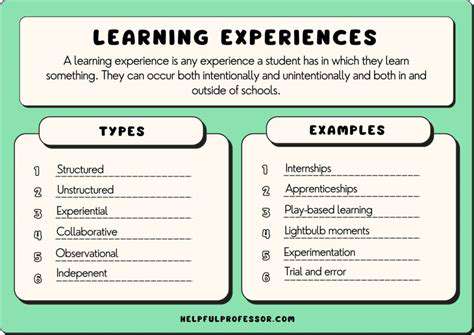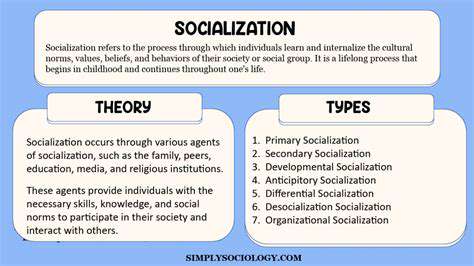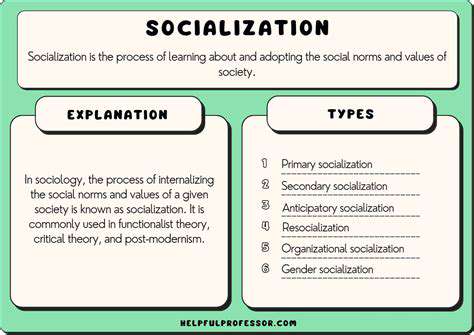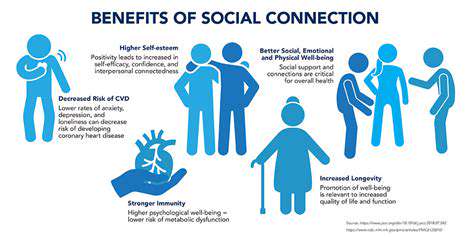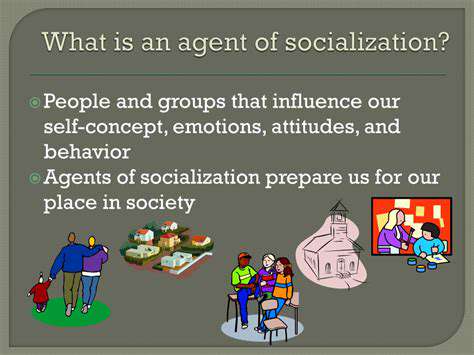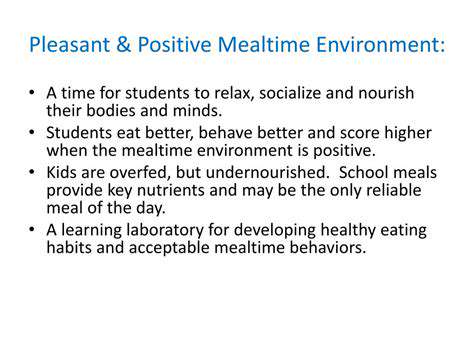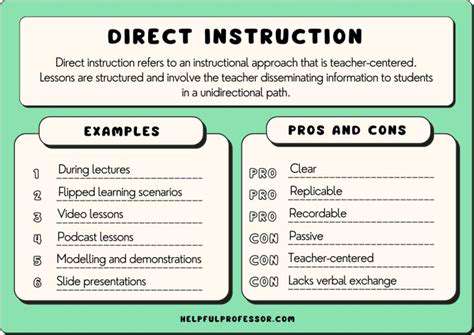The Role of Novelty and Stimulation in Puppy Socialization
Puppies are incredibly receptive to learning and interacting with the world during their early developmental stages, typically from 3 to 12 weeks of age. This crucial period, often referred to as the socialization period, significantly impacts their future behavior and temperament. Early exposure to various sights, sounds, people, and other animals lays the foundation for a well-adjusted, confident, and happy dog. A properly socialized pup is more likely to thrive in a variety of situations, from bustling parks to quiet home environments.
Early socialization goes beyond just preventing aggression; it fosters a dog who is comfortable in various settings and with diverse individuals. A socialized puppy learns to navigate the complexities of the world with poise and confidence, avoiding fear-based reactions.
Introducing Novel Environments and Experiences
Exposing puppies to a range of environments from bustling pet stores to quiet residential neighborhoods is crucial. This exposure allows the puppy to experience new sounds, sights, and smells, helping them develop a balanced perspective. Remember that this introduction should be positive and controlled, ensuring the puppy feels safe and comfortable, rather than overwhelmed. Positive reinforcement and reward-based training methods will be paramount during these crucial interactions.
Taking puppies to dog-friendly parks, even short visits to begin with, can help them become comfortable in social situations and around other dogs and people. The controlled and gradual introduction helps them build confidence and develop appropriate social skills.
The Impact of Socialization on Temperament
A well-socialized puppy is far more likely to be outgoing, adaptable, and friendly. Conversely, a puppy lacking adequate socialization might exhibit fear-based behaviors or aggression. Understanding this crucial connection between early experiences and future temperament is paramount for responsible puppy ownership.
Early socialization helps establish a robust foundation for a positive relationship between the puppy and their human, fostering a partnership based on trust and mutual understanding. The puppy's comfort level will be impacted by the early experiences that they are given.
Controlling Stimuli for Maximum Learning
It's essential to introduce new stimuli gradually and avoid overwhelming the puppy. Overwhelming experiences can be detrimental and create negative associations with specific situations. A careful approach, involving measured introductions to new people, places, and other animals, is key.
Using positive reinforcement during these interactions will help the puppy associate new experiences with positive outcomes, fostering a secure and confident demeanor. This crucial approach will influence the puppy’s reaction and learning capabilities when they meet new situations.
The Role of Positive Reinforcement
Positive reinforcement is essential during socialization. Rewarding calm and appropriate responses to new stimuli reinforces positive behavior and encourages the puppy to approach new experiences with confidence. This method also avoids creating fear-based responses to various situations that might impact their confidence level in later life.
Punishment or negative reinforcement should be avoided at all costs during this critical period. These methods are counterproductive, potentially damaging the puppy's confidence and creating anxieties that can manifest in fear-based behaviors.
Addressing Potential Challenges in Socialization
While early socialization is beneficial, some puppies might face challenges. These challenges may be caused by the way they are treated in their early life. Understanding the signs of anxiety or fear and employing appropriate management techniques are vital steps in helping the puppy overcome these potential obstacles.
Consult with a veterinarian or certified dog trainer if you encounter difficulty in socialising your puppy. They can offer personalized advice and support, ensuring your puppy receives the best possible care during this crucial developmental period.
Introducing Novelty and Stimulation: Key Ingredients for Success

Enhancing Engagement through Novelty
Introducing novelty in various contexts, from everyday experiences to complex systems, has a powerful impact on engagement and motivation. Novelty stimulates curiosity and a desire to explore, leading to heightened interest and deeper involvement. This principle applies not only to leisure activities but also to educational settings, where novel approaches can foster a more active and receptive learning environment.
The introduction of new elements, whether in design, presentation, or content, can refresh existing ideas and experiences, preventing stagnation and fostering a sense of continued growth. It is this very act of introducing something fresh that can reignite interest and ignite a passion for the unknown.
Creating a Dynamic Learning Environment
In education, introducing novelty and stimulation is crucial for creating a dynamic learning environment. Students are more likely to retain and apply information when the learning process is engaging and thought-provoking. A monotonous and predictable curriculum can lead to disengagement and a lack of motivation, hindering academic progress.
Integrating novel teaching methods, innovative technologies, and varied learning activities can substantially improve student understanding and comprehension. This proactive approach allows students to actively participate and develop a more profound understanding of the subject matter.
Stimulating Creativity and Innovation
A consistent input of novel ideas and approaches can be instrumental in fostering a creative and innovative environment. New perspectives and fresh ideas often spark creativity and drive innovation, leading to breakthroughs in diverse fields. This process of introducing novelty encourages individuals to think outside the box, consider alternative solutions, and challenge existing norms.
By regularly exposing oneself to new stimuli, one can expand their intellectual horizons and enhance their capacity for creative problem-solving. This ability to think creatively is a fundamental skill in navigating the complexities of the modern world and tackling emerging challenges.
Boosting Motivation and Interest
Introducing novel elements and stimulation is key for sustaining motivation. A predictable environment can easily become monotonous and demotivating, especially in tasks that require prolonged effort. By introducing novelty, we can reignite interest and create a desire for continued participation.
Improving Memory Retention
Novelty plays a significant role in enhancing memory retention. When information is presented in an unusual or unexpected way, it is more likely to be encoded and stored in long-term memory. This enhanced memory retention is particularly useful in situations where information needs to be recalled and applied over a period of time.
Enhancing Problem-Solving Skills
Exposure to novel situations and problems can significantly enhance problem-solving abilities. By encountering unfamiliar scenarios, individuals develop a greater capacity to approach challenges with a wider range of strategies. This adaptability and flexibility are vital for success in diverse fields and contexts.
Application Across Industries
The principle of introducing novelty and stimulation is not confined to a single industry or domain. It has far-reaching implications across various sectors, including business, education, entertainment, and beyond. By introducing novel approaches and elements, we can drive progress, foster innovation, and create more engaging and stimulating experiences. This fundamental principle can be applied in countless ways to improve outcomes and achieve a higher quality of life across all aspects of society. This adaptable principle will continue to benefit industries across the globe as circumstances change.
Creating a Safe and Positive Socialization Environment

Setting Clear Boundaries
Establishing clear boundaries is crucial for creating a safe and positive social environment. This involves defining acceptable behaviors and expectations for interactions with others. Explicitly communicating these boundaries fosters mutual respect and prevents misunderstandings. For example, setting a limit on the amount of time spent on social media can help individuals to avoid social isolation or addiction.
Promoting Active Listening
Active listening involves paying close attention to what others are saying, both verbally and nonverbally. It demonstrates respect for the speaker and creates a space for meaningful connection and understanding. By truly hearing others, individuals can build empathy and foster a deeper sense of trust. Active listening prevents misinterpretations and allows for resolution of conflicts more effectively.
Encouraging Open Communication
Open communication is the foundation of a healthy social environment. It involves creating a space where individuals feel comfortable expressing their thoughts and feelings without fear of judgment or reprisal. Honest and open dialogue allows for the exploration of different perspectives, fostering mutual understanding and respect. Constructive criticism should always be delivered with empathy and respect for the receiver's feelings.
Respecting Individual Differences
Respecting individual differences is essential for fostering a positive and inclusive social environment. This involves acknowledging and appreciating the unique perspectives, experiences, and backgrounds that each person brings to the group. Celebrating diversity fosters creativity, innovation, and broader understanding. Everyone has their own path to take, and everyone deserves to be recognized and appreciated for who they are.
Emphasizing Empathy and Compassion
Cultivating empathy and compassion is vital for building strong social bonds. Empathy involves understanding and sharing the feelings of others, while compassion involves caring for others and responding to their needs with kindness and generosity. Developing these qualities allows for greater connection and understanding with those around us. Practicing empathy in our interactions helps to resolve conflict and build stronger social connections.
Celebrating Achievements and Contributions
Acknowledging and appreciating the contributions of others fosters a sense of belonging and reinforces positive behaviors. Celebrating achievements, no matter how small, creates a supportive and encouraging environment. This builds confidence and motivates individuals to continue contributing positively to the group. Recognizing accomplishments and contributions strengthens the social fabric, making it a place where everyone feels valued and empowered.
Addressing Conflict Constructively
Conflict is inevitable in any social environment, but how it's handled significantly impacts its overall tone. Addressing disagreements constructively involves actively listening to all perspectives, seeking common ground, and finding solutions that satisfy all involved parties. Effective conflict resolution fosters mutual respect and strengthens relationships. Seeking solutions collaboratively results in a much stronger social environment than trying to win an argument.
